Stories

March 18, 2022
Two Nutrition and Exercise Physiology Students Win Poster Awards
Neil McMillian and Eric Lis were awarded poster awards at the Cardiovascular Research Day hosted by the Dalton Cardiovascular Research Center. McMillian was awarded the Graduate Student award for his poster titled Increased Muscle Sympathetic Nerve Activity Hyperinsulinemia: Role of Insulin-simulated Peripheral Vasodilation and the Response of the Arterial Baroreflex. Lis was awarded the undergraduate Student Award for his poster titled Peripheral Chemoreflex Sensitivity is Augmented in Human Type 2 Diabetes. …
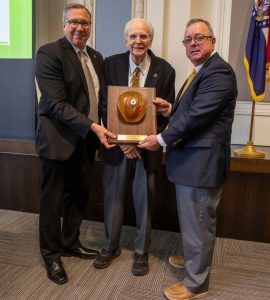
March 11, 2022
Abner Womack Receives the Jay B. Dillingham Award for Agricultural Leadership and Excellence
The Agricultural Business Council of Kansas City honored Abner Womack May 18 at a luncheon in the Chamber Board Room in Kansas City’s historic Union Station. Womack, Professor Emeritus of Agricultural Economics and co-founder of the Food and Agricultural Policy Research Institute (FAPRI-MU) at the University of Missouri, received the Council’s highest award, the Jay B. Dillingham Award for Agricultural Leadership and Excellence. His work at FAPRI earned him national recognition and built upon his earlier work at USDA’s Economic Research Service where he developed econometric models that focused on the structure of the global food system. His work at…
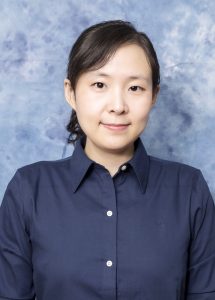
March 11, 2022
Pei Liu Accepted into the Early Career Research Development Fellows Program
Pei Liu, assistant professor in hospitality management, has been accepted into the Early Career Research Development Fellowship through MU’s Office of Research. The Early Career Research Development Fellows Program is aimed at full-time, pre-tenure faculty who are seeking opportunities for strategic career planning and skill development in the area of academic research. During the three-year program, participants are expected to attend monthly 1.5-hour sessions on a range of topics, engage in discussions with peer researchers and participate in individual consultations with staff in the Office of Research and Economic Development.
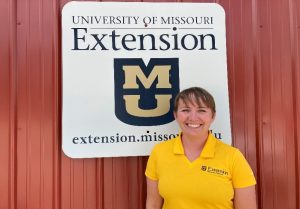
March 8, 2022
Q&A with Jenna Monnig
What do you do in your current role with the University of Missouri? I am a livestock specialist headquartered in Mercer County in the North Central portion of the state. I also currently serve as the superintendent of the Thompson Farm. As a livestock specialist, I work to answer questions for producers about all species of livestock and bring them unbiased research-based answers that will hopefully help improve their operations. Most of my work focuses on beef cattle reproduction through AI schools, calving clinics and the Show-Me-Select heifer program. I also answer many nutrition and management questions and questions about other…

March 8, 2022
MU Announces the Creation of the Missouri Water Center
The University of Missouri today announced the creation of the Missouri Water Center, a central hub for research on the state’s water resources. The new academic center will combine existing resources and improve coordination across campus — tackling emerging water quality issues and factors that contributed to record flooding in 2019 and years of persistent drought — as well as facilitate new collaborations among faculty, government and industry partners. The Missouri Water Center was created by merging two existing centers at MU: The Missouri Water Resource Research Center in the College of Engineering and the Center for Watershed Management and Water…

March 3, 2022
Two CAFNR Students Honored as Mizzou 18 Award Recipients
This week, the Mizzou Alumni Association and Alumni Association Student Board named the 2022 Mizzou 18 Award and Mizzou ’39 Award recipients. The Mizzou 18 Award is dedicated to honoring 18 University of Missouri graduate and professional students in the last year of their degree eligibility. Recipients are chosen for their world-class research, collaboration with faculty and staff, and their demonstrated leadership with undergraduate students. The two CAFNR students to earn the honor are: Jibin Baby, Hospitality Management Lucy McGowan, Agricultural and Applied Economics…
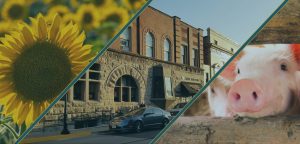
March 3, 2022
Rural and Farm Finance Policy Analysis Center Announced
The University of Missouri (MU) College of Agriculture, Food and Natural Resources (CAFNR) has formed a new Rural and Farm Finance Policy Analysis Center (RaFF). The center will study how policies and agricultural markets affect farm and rural finances by U.S. region. At 10 a.m. on Wednesday, March 9, Sarah Low will present “Introducing the Rural and Farm Finance Policy Analysis Center” as part of DASS’ Engaging 4 MO webinar series. During the 30-minute webinar, she’ll share more details about RaFF and highlight its first issue brief about rural economic drivers. The event is free and open to the public.

Feb. 25, 2022
Get to Know Mackenzie Ewing
What are your job duties/job responsibilities in the College of Agriculture, Food and Natural Resources? I am the Senior Academic Advisor for the Division of Plant Sciences & Technology. I advise, assist with recruitment, and teach career development for Plant Sciences & Agricultural Systems Technology students. How long have you worked in CAFNR? I have been in CAFNR since August but have been advising students at MU since April 1, 2015, no joke. What do you enjoy about working for CAFNR/Mizzou? I love how welcoming everyone is, it truly is one big family. Our students are fantastic, I have enjoyed…
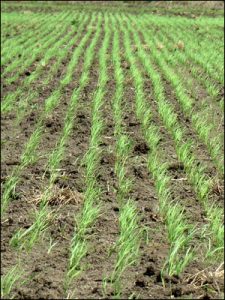
Feb. 24, 2022
Liakat Ali Awarded the 2021 Outstanding Papers in the Plant Genetic Resource Division of the Crop Society of America
Liakat Ali, a research scientist at the Fisher Delta Research, Extension and Education Center soybean breeding program, has been awarded the 2021 Outstanding Papers in the Plant Genetic Resource division of the Crop Science Society of America. The paper is titled Enhancing the searchability, breeding utility, and efficient management of germplasm accessions in the USDA-ARS rice collection. …
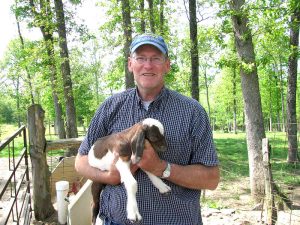
Feb. 21, 2022
Q&A with Eric Meusch
Meusch enjoys working with livestock producers in seven counties over three regions. What do you do in your current role with the University of Missouri? I am a field specialist in livestock. I am based in Salem, and I serve seven counties in the East Central (Dent, Phelps, Pulaski, Crawford), Southeast (Shannon and Reynolds) and Southwest (Texas) regions. How long have you worked in this position? I started this position in March of 2021. I have been with Extension for three years. What is your favorite part about the work you do? I like working with producers who are…